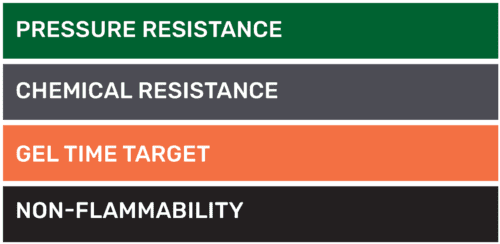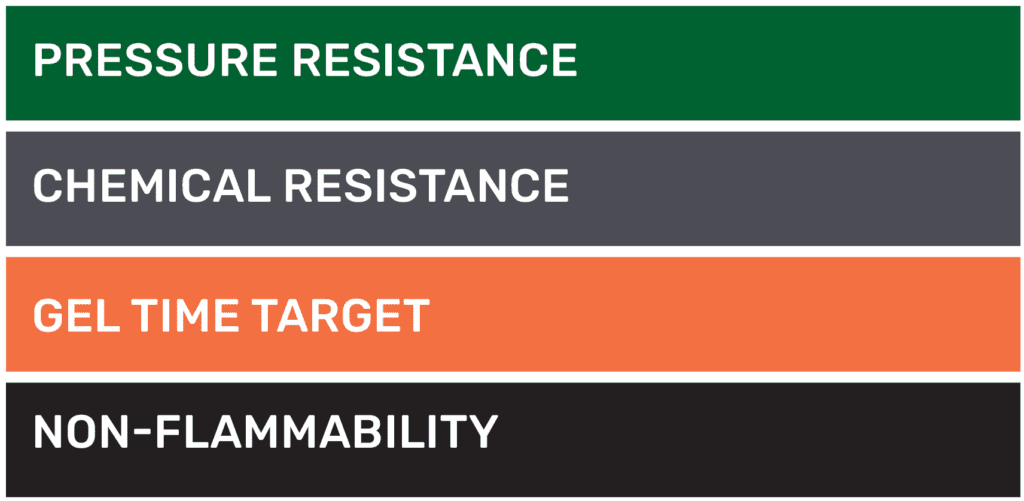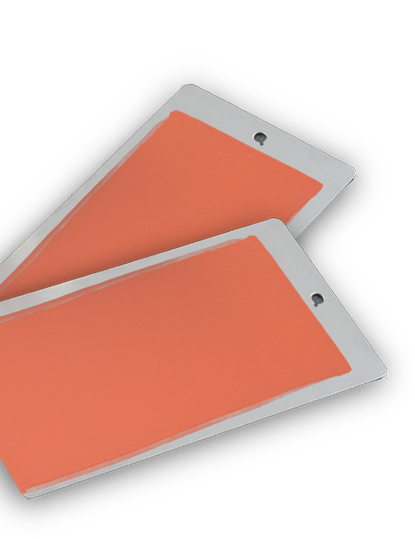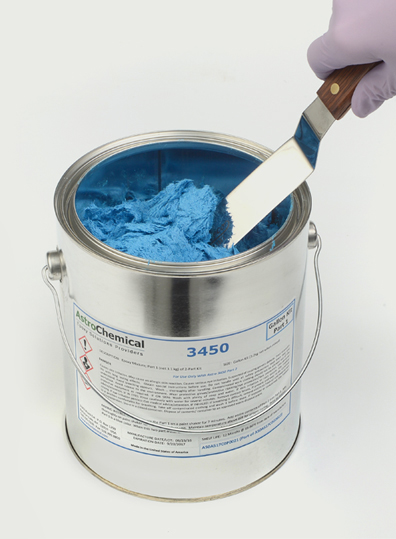Astro Chemical developed a safer, longer shelf-life sealant for glands in explosion-proof equipment, meeting technical requirements as well as the desired cure and application criteria.
APPLICATION OVERVIEW 
Cable glands are integral components used in electrical enclosures for many industries, such as oil and gas, mining, and chemical processing; applications in which electrical equipment and instrumentation require critical electrical protection against corrosion, extreme temperatures, and potentially explosive environments. Specialized gland sealants are used to pot the gland, encapsulating the wiring contained, during the final installation process. These sealants must be nonflammable and pass specific chemical resistance, hydrolytic pressure, and explosion testing.
CHALLENGE
A global manufacturer of industrial explosion-proof electrical components and equipment approached Astro to replace an off-the-shelf sealant that was proving to be insufficient. Their products range from cable glands and switchgear to panelboards, plugs, and signaling and communications devices. The company was looking for a cable gland sealant that would be safer for its workers and have a longer shelf life. Return-to-service time was critical so a fast-curing product was needed to minimize downtime. When standard products couldn’t meet their strict industrial and application requirements, the company turned to Astro to develop a tailored solution.
The goal was to develop a product that met the application requirements while minimizing the health risks for the workers and increasing the shelf life as compared to what was considered the best available product.
Table 1. Key Performance Criteria
| Critical Performance Properties | Test Method | Target | Result |
|---|---|---|---|
| Flammability | UL 94V | 94V-0 | - |
| Chemical Compatibility | UL 2225 | Pass | Pass |
| Hydrolytic Pressure Testing | UL 2225 | >3,000 psi for 60 sec. | Pass |
| Explosion | UL 2225 | Pass | Pass |
| Gel Time, 15 grams @ 25˚ C | Internal Method | <30 minutes | 30 minutes |
| Volatile Organic Compounds | ASTM D3960-05 | 0 | 0 |
| Isocyanate Content % | Not applicable | 0% | 0% |
CUSTOMIZED SOLUTION
Astro Chemical chose to pursue an epoxy-based formulation due to the chemistry’s inherent chemical resistance and conducted the following procedures:
Step 1
Astro identified epoxy resin components and curatives that would provide a fast return to service, while curing over a range of temperatures, 0-40°C (32-104°F), with a target cure time of less than 30 minutes at 25°C. In a subsequent study, we incorporated hundreds of formulation iterations that were tested for gel time at four temperatures (0, 10, 25 and 40°C) and three masses (15, 30 and 50 grams) to assess cure speed.
Step 2
Astro incorporated flame-resistant component chemistries that would allow the cured system to meet the standard flammability rating. For the UL-certified test, cured bars cast from the candidate formulas (5 in. by 1/2 in. by 1/2 in.) were exposed vertically to a flame for 10 seconds. The test was performed twice on each sample for a minimum of five test specimens per candidates, per the UL criteria. The certified flammability rating is achieved when none of the specimens exhibit an individual total flaming combustion of 10 seconds, and the total flaming combustion of all 5 specimens is less than 50 seconds.
Step 3
A custom-designed enclosure was then developed to hydraulically pressure test the candidate systems. Astro prepared test samples by filling glands with candidate formulations cured for 24 hours at 25°C. Each specimen was exposed to over 3,000 psi hydraulic pressure for 60 seconds. A candidate formula was considered passing when all samples did not fail, move or dislodge from the gland. A total of 115 individual tests were required to identify and confirm the final epoxy system through hydro testing.
Step 4
The down-selected candidate formulations were then tested for chemical exposure. Two sets of samples were prepared and tested to the criteria in Step 3 after chemical exposure for 24 hours and 168 hours, respectively.
Step 5
Astro presented the successful sealant formulation to the customer for evaluation and final certification.



